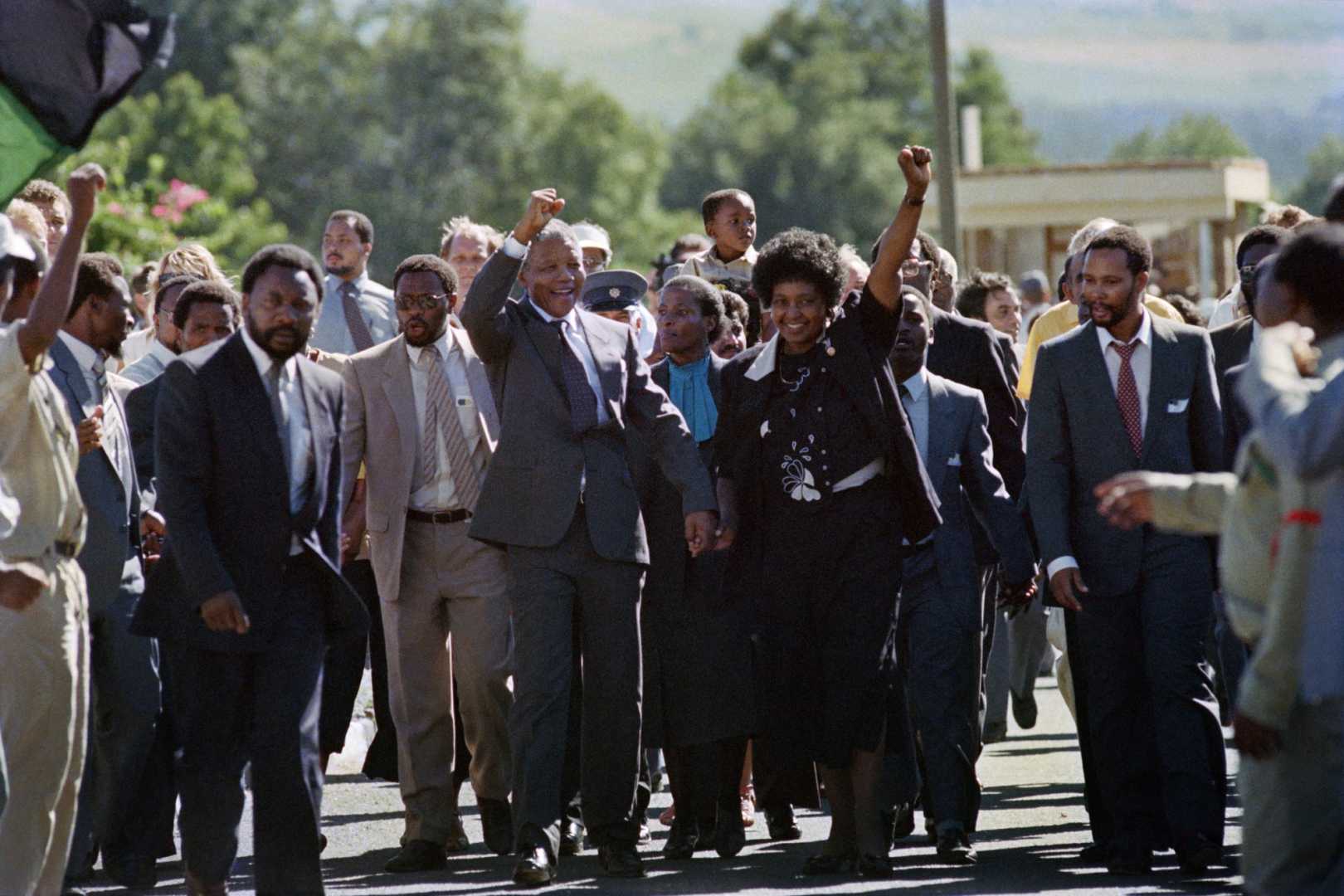News
35 Years Since Nelson Mandela’s Historic Prison Release

JOHANNESBURG, South Africa — Today marks the 35th anniversary of Nelson Mandela‘s release from Victor Verster Prison, a pivotal moment in the fight against apartheid. Mandela, once the renowned leader of the African National Congress (ANC), walked free on February 11, 1990, after spending 27 years behind bars for opposing the regime’s racist policies.
During his imprisonment, Mandela endured harsh conditions, spending 18 years in a small cell on Robben Island. He famously drew inspiration from William Ernest Henley’s poem “Invictus,” which emphasizes resilience in the face of adversity. The lines, “I am the master of my fate; I am the captain of my soul,” became a mantra for Mandela during his long confinement.
His release was not just a personal victory but a significant step toward dismantling apartheid, as Mandela symbolized hope for many South Africans. At the rally following his release in Cape Town, he addressed a jubilant crowd, delivering a message of gratitude and unity. “I greet you all in the name of peace, democracy, and freedom for all,” he stated, emphasizing the collective struggle of his fellow South Africans.
On that day, Mandela stood alongside then-South African President F.W. de Klerk, marking the beginning of negotiations that would lead to a non-racial democracy. In 1993, both leaders were awarded the Nobel Peace Prize for their efforts in transforming South Africa.
Mandela’s political career flourished after his release; he became the first black president of South Africa in 1994, a historical moment not experienced by many before him. This election marked the first time he voted in an election open to all races in a country previously dominated by white control for over 350 years.
Throughout his life, Mandela maintained respect for Gandhi’s principles of non-violence, a philosophy embraced by many throughout South Africa and India. His influence transcended borders, as India became a vocal supporter of the ANC’s fight against apartheid. In 1990, Mandela became the first foreigner to receive the Bharat Ratna, India’s highest civilian honor.
Mandela chose not to seek a second term after serving as president, opting instead to remain an advocate for peace and social justice. After his passing in 2013, his legacy continued to inspire movements for equality across the globe.
As South Africa commemorates his release, questions linger about the nation’s progress toward achieving Mandela’s dream of unity and equality. Professor Verne Harris from the Nelson Mandela Foundation reflects on this legacy, stating, “While we have made strides, the journey towards true equality remains ongoing.” The nation continues to grapple with the challenges of inequality and racial tension, but the spirit of Mandela’s vision lives on in the efforts of many.












